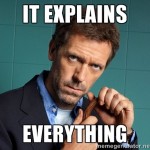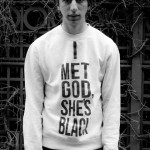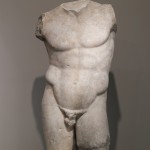Yesterday, Star Foster held a “Live Pagan Hangout” on the topic of “active tolerance” (a term which implies more than just “tolerating” someone) with Teo Bishop, Crystal Blanton, David Dashifen Kees, and Davd Salisbury. Although not mentioned, the event was in response to M.J. Lee’s post on Humanistic Paganism, “Why Do People Want Supernatural Gods?”. M.J., for her part, has tried to explain that she was responding to an earlier discussion in the comments section of another post on H.P. and her post was taken out of that context.
“Would that Pandora had never opened the heavenly cover of that jar–she the sweet bane of mankind!”
— Nonnus, Dionysiaca
Whatever M.J.’s intent, her post drew the wrath of several polytheists. What I find interesting about their responses is that the most irate of the polytheists (Star among them) seem to suggest that no one has the right to question their beliefs. For someone who does not need/want supernatural deities, the question why someone else would want them seems to me like the most natural of questions. It is the kind of question that naturalistic and humanistic Pagans ask of each other all the time. But Star and others seem to suggest that the question is not permissible in the Pagan community.
My question is this: When did the First Commandment of Paganism become: Thou shalt not doubt another’s experience? (or their interpretation of their experience?)
This is not an idle question. The issue came up at Steven Posch’s workshop at PSG 2011. His co-presenter (I’m sorry I cannot recall his name at this moment) was advocating a constructive form of ritual critique so that we can make our rituals better. However, he observed that this runs against the grain of Pagan culture, where the one rule everyone implicitly agrees on is that we cannot question or criticize another’s practice. The result, he suggested, is mediocrity in our rituals. I suggest the same is true in our theology.
Many polytheists have responded to M.J. (either on H.P. or on other forums) that their definition of deity is ambiguous. I admit mine is too. And I think a certain amount of ambiguity tolerance is a sign of maturity — especially in matters of deity. But, ambiguity tolerance can also be a cover for lack of intellectual rigor. (I know sometimes has been in my case at least.) Some polytheists have responded by suggesting that intellectual inquiry and religion are non-overlapping “magisteria” (to use Steven Gould’s term) or domains. I would respond that such a schizophrenic division of one’s self is contrary to the theme of non-dualism that runs through so much of Paganism.
For those who respond that their beliefs are amenable to rational discussion, then I say, “Great! Let’s talk!” A few of the less ambiguous polytheists, for example, have explained that they believe that the gods are evolved human beings. I don’t see how that claim is any different than claiming to be visited by aliens. And I don’t mean that in a pejorative sense. Both claims may be true or false. Both are probably ultimately unresolvable right now. But both are still subject to rational inquiry. Both claims raise important questions. And while we may not be able to answer either question definitively, the process of asking the question and trying to answer it is valuable and productive in itself. In short, it is worthy of discussion. And the same is true of any other explanation for deities — mine included.
Perhaps what “cheesed” Star’s “grits” was not that M.J. asked the question, but that she offered a tentative answer, one naturally framed from her own perspective. If I ask a question about your beliefs and then propose an answer, you may not like the proposed answer. You may offer another answer. But to charge me with evangelical atheism or trying to impose an atheist orthodoxy is inaccurate, unfair, and inflammatory. Proposing an answer is called theorizing. It is a far cry from imposing an orthodoxy. In fact, the spirit of free inquiry which drives this process of questioning and proposing tentative answers is the only remedy for orthodoxy.
If you want to avoid orthodoxy, then we need to have more discussion, not less. And some of that discussion needs to be (constructively) critical. Or else we become vulnerable groupthink. Sometimes it is only the best of our friends that force us to ask the hardest of questions about ourselves. Why are some Pagans so sensitive that they cannot “tolerate” a little critical questioning of their beliefs? I am beginning to wonder now if, in some cases, the objection that Pagans have to proselytizing arises out of an unconscious fear that, if we put ourselves out there, someone will ask hard questions about our beliefs. I wonder if the lack of developed theology in Paganism is, not the result of a commitment to praxis, but a fear of criticism. And I wonder if the “tolerance” being advocated is not, in some cases, an excuse for insularism.
Star would seize the moral high ground with the word “tolerance”. But ironically she tries to use the word to silence an entire segment of the Pagan community. (I find it interesting that Star continues to keep the comments section of her blog disabled.) Tolerance is not the antithesis of free inquiry. They are two mutually interdependent steps in the same process.















